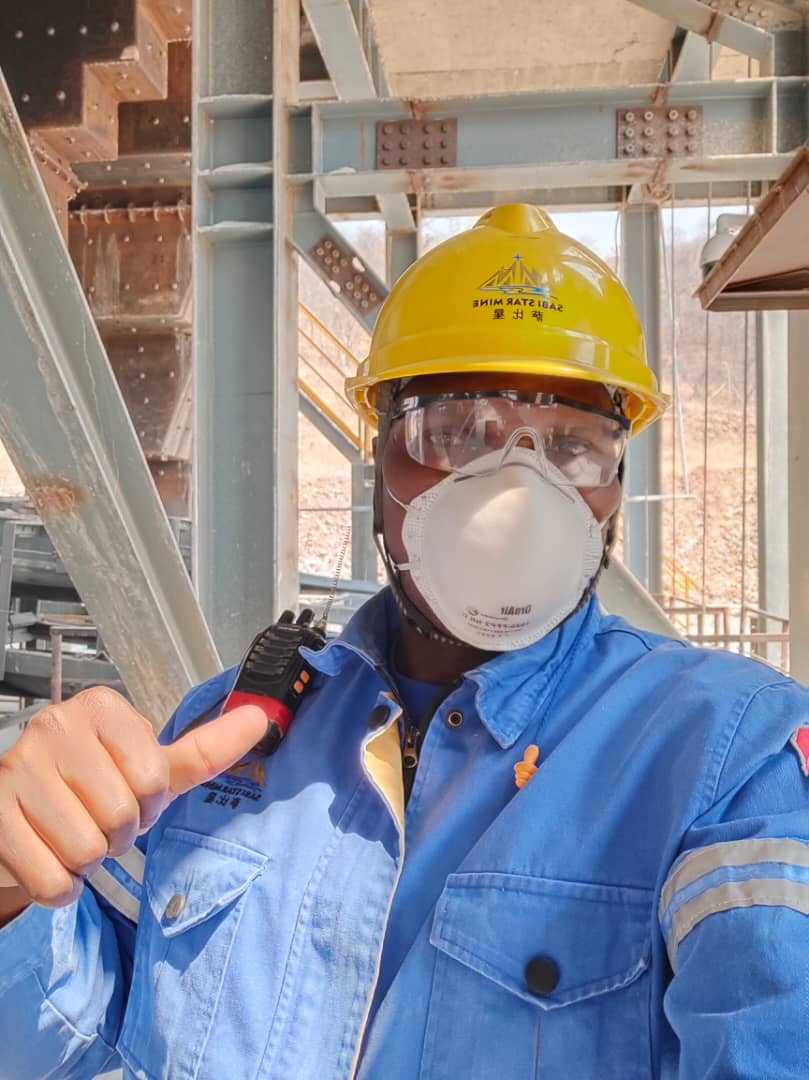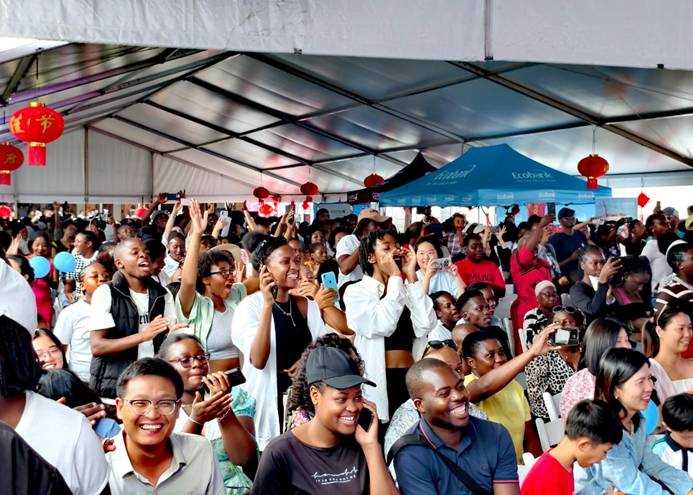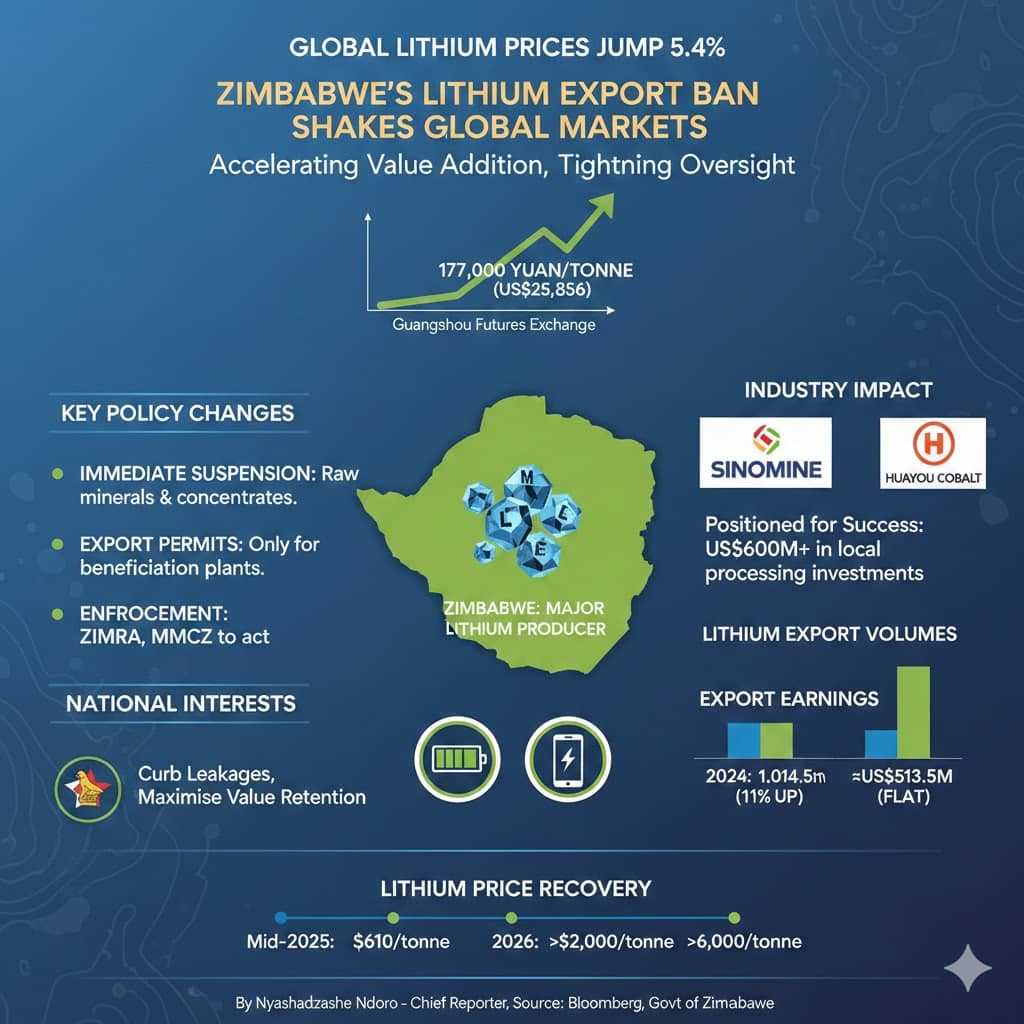
Patience Muchemwa
Senior Reporter
Janet Gorekore is a lab technician at Sabi Star Lithium Mine. Just three years ago she was just another ordinary villager barely eking a living from farming in the arid Buhera area.
Then she was lucky enough to land a job with Sabi Star as a sampler. Determined to make the best of the opportunity, Janet took advantage of the mine’s skills transfer policy and is now a skilled worker.
Elias Chirevo volunteered to provide labour when Max Mind offered to help the Buhera community build up a school before the company had even started operating its Sabi Star Lithium Mine.
The civic mindedness worked out for the villager when he was automatically invited to join the formal labour force when work on the mine started. He started as a general hand but with eagerness to acquire more skills, today he is an assistant plant attendant.

The stories of Janet and Elias reflect that of thousands other Zimbabweans that over the past years have found decent and well-paying work as Chinese investors open up mines and other enterprises.
According to Zimstat the employment-to-population ratio (EPR) stood at 34.9% by the third quarter of 2023, up from 34% the previous year.
This increase indicates a slight improvement in the ability of the economy to create employment opportunities for the working-age population.
The labour force participation rate (LFPR), which measures the proportion of the working-age population that is either employed or actively seeking work, also rose to 44.1% in the third quarter of 2023, reflecting a 1.5 percentage point increase from the previous year.
From a time when formal employment outside the civil service was so negligible that it was not worth mentioning, Zimbabwe is making incremental progress toward improving employment opportunities, and the road to full economic recovery and job creation remains ongoing.
Chinese investments have significantly boosted employment across Zimbabwe, particularly in mining and infrastructure development.
At one job fair Chinese companies had over 750 jobs on offer, while at another fair over 50 companies were looking for potential employees from general hands to senior managers.
https://zimbabwenow.co.zw/articles/6884/dozens-of-jobs-at-zimbabwe-china-job-fair
China Minmetals Corporation has transformed its Bikita Lithium Mine project with a $200 million investment aimed at building new production lines and upgrading facilities.
This move is set to create 1,500 jobs in the near future, adding to the 1,078 local employees the company currently employs.
Related Stories
Of these employees, 80% are from surrounding communities such as Bikita, Gutu, and Masvingo.
The ripple effect of these investments is immense. Before the acquisition of Bikita Mining by China Mineral Resources in 2022, the company only employed around 250 people.
Adding indirect jobs through contractors and upstream and downstream services, employment figures jump up to around 2,550. The economic benefits are being felt across entire communities.
Salaries have also improved; the company’s average monthly wage has risen by 55.8%, markedly improving the living standards of employees and their families.
Other companies such as Southern Mining Limited and Kamativi Mining Company (KMC) are also playing a key role in employment creation.
Southern Mining, one of the largest coal producers in Zimbabwe, employs 1,200 workers and produces 400,000 tons of coking coal annually.
KMC, which restarted mining operations in the previously dormant Kamativi region, has generated over 300 direct jobs and more than 1,000 indirect jobs through subcontractors.
These companies have also contributed to economic stability by offering competitive wages, healthcare, and training opportunities, fostering sustainable development in local communities.
In addition to direct employment offered through the companies themselves and their contractors, Chinese investments have also provided fertile ground for local businesses.
Chipo Hove from Mberengwa says she suddenly found herself the sole breadwinner after her husband died in 2021.
She realised that her teacher’s salary would not be adequate to send her three kids to school, especially as the eldest was to start university in 2022.
So she looked for opportunities to start a small side business and started traveling to Harare to buy items for resale in Mberengwa.
She got plastic ware, bedding and other cheap goods made in Zimbabwe by Chinese operated manufacturers.
Hove says the business has grown so much that she has managed to send her kids to school and buy a small personal car.
Hove says it is thanks to Chinese enterprises that created opportunities that she is now building a house in Zvishavane, something that would not have been easy even if her husband had still been alive and bringing home his own teacher’s pay.
The overall employment impact reflects the success of China’s investment model in promoting local economic growth and reducing poverty in Zimbabwe.




















Leave Comments